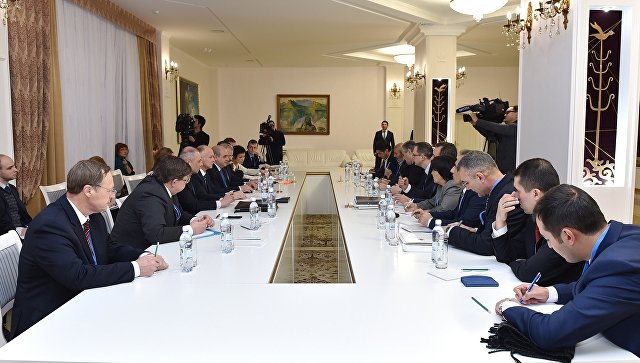"The meeting in Astana may be held in March, before the Novruz (March 21), but it has not yet been confirmed," Iran's Ambassador to Kazakhstan Mojtaba Damirchilu told RIA Novosti, speaking about possible dates for the next meeting on the Syrian settlement. Today, the Kazakh Foreign Minister Kairat Abdrakhmanov said that data on the next meeting on Syria in the framework of the Astana process will be available early next week. The previous round of talks on the Syrian settlement was held in Astana on February 15-16, which resulted in the agreement on the establishment of a monitoring group to oversee the implementation of the ceasefire in Syria with the participation of Iran, Russia and Turkey.
Speaking on the prospects of cooperation between Moscow, Ankara and Tehran with Vestnik Kavkaza, the chairman of the Council for Foreign and Defense Policy, a political analyst Fyodor Lukyanov, said: "The format of Russia-Iran-Turkey is a very important, very unexpected, given the fact that our relations with Iran are not great, and only a year ago there was a sharpest conflict with Turkey, which almost led us to the brink of military conflict. However, the parties have understood the need for joint actions. Their interests do not match, but there is a point where they intersect. "

Lukyanov drew attention to the fact that if the three non-Arab countries will try to decide the fate of the Arab world, saying it what to do, things won't work out in the long term: "It is a practice that has not worked out in the Middle East repeatedly. That is, when external forces think that they will organize everything, it does not work. Therefore, the next step after Astana they should involve the Arab countries, such as Saudi Arabia [in the process of the Syrian settlement]."
In addition, according to the analyst, it is unlikely that the process will be held without the United States: "Now their position is unclear, but the Americans have a huge number of tools to frustrate the process. Therefore, they cannot be circumvented. In short, the next stage is an extension of the number of participants, although the Russia-Iran-Turkey format is promising, because it shows the possibility of cooperation between those who seemed not to be able to work together".
Answering the question about the impact of Western interests on the South Caucasus, Lukyanov noted: "The US and Europe are in a state of inner reflection, but in varying degrees and for different reasons, and the intense stage of expansion after the Cold War is over, I think. Now they have other priorities and a lot of internal problems, but do not have sufficient resources. But the United States will not just disappear from the Caucasus, however, all post-Soviet countries have to understand that the era when they could live off the controversy is over. It is not necessary to perceive itself as a tidbit to fight about".






